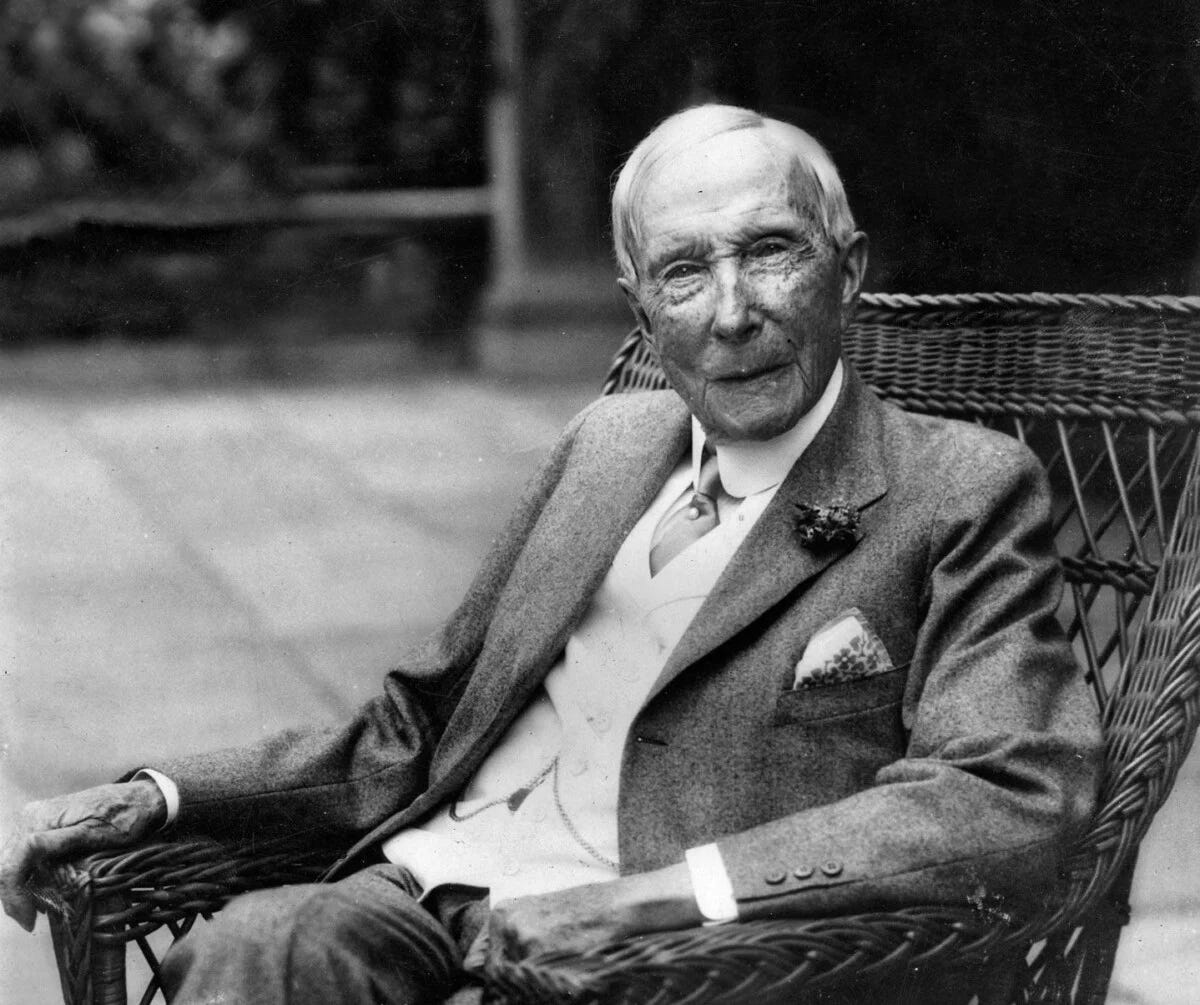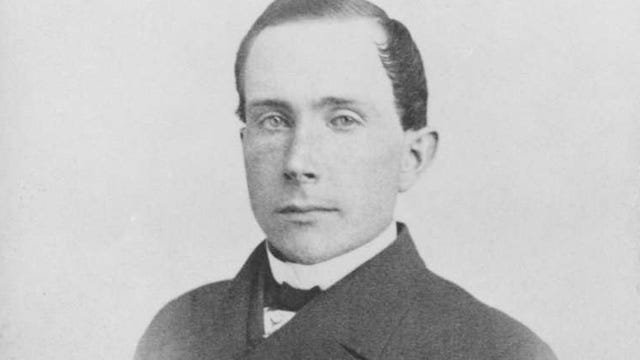How John D. Rockefeller Became The First Billionaire
Rockefeller displayed six business skills that helped him build an empire.
John D. Rockefeller became one of the wealthiest Americans in history by seizing control of the nascent oil business. By the time he turned forty, he had most of the industry under his control, thanks to his studies of prudent and safe business practices. Rockefeller earned thousands of dollars daily when his Standard Oil Company rose to prominence as the nation's leading oil refinery. He became the first billionaire on the list through his industry navigation and embrace of monopolistic business practices.
Early Life and Business
John D. Rockefeller was born in Richford, New York, in July 1839. John's mother was a devout woman who taught him about work and money, whereas his father was a travelling salesman and con artist. Rockefeller's aptitude for mathematics would come in handy as a businessman. Rockefeller and his family relocated to Cleveland, Ohio, when he was about 14 years old. He started helping local farmers but didn't enjoy how much physical effort was involved. Rockefeller decided to enrol at Mercantile College in Folsom, where he learned accountancy procedures, practises, and calligraphy. After graduating in 1855, he began hunting for jobs in Cleveland as a bookkeeper.
He kept looking for work, and eventually, Hewitt and Tuttle, a merchant company, employed him as an assistant bookkeeper. He learned about standard bookkeeping procedures and began participating in the company's trading activities. Rockefeller left Hewitt and Tuttle in 1859 to pursue his own commercial endeavours. He and Maurice B. Clark entered into a business partnership. Together, they contributed $4,000 to launch the Clark and Rockefeller business. Produce was the primary focus of commission merchants Clark and Rockefeller. During the American Civil War, they sold meats, grain, and hay to the federal government, making substantial profits.
Rockefeller was a savvy businessman, always looking for new business opportunities and wishing to expand his profits. The first oil well was drilled in Titusville, Pennsylvania, by Edwin Drake, who struck oil in August 1859. After noticing this development, Rockefeller decided to seize the chance presented by the booming oil sector. Samuel Andrews joined forces with Clark and Rockefeller to launch an oil-refining company. The business was renamed Rockefeller and Andrews in 1865 when Rockefeller acquired Clark's share.
Andrews and Rockefeller developed a plan to stabilise the oil industry's pricing. Due to the small market, prices were uneven when the oil industry was still in its infancy. They met with Oliver H. Payne, the biggest rival in the Cleveland oil sector, to reach a collaboration arrangement. With the founding of the Standard Oil Company in January 1870, John D. Rockefeller's long-term leadership success and exponential fortune began.
6 Business Skills
John D. Rockefeller is regarded as one of the most successful business leaders of all time, and his success was surely more than just a coincidence. He had several noteworthy traits that made him stand out, including persistence, poise and reserve, an under-inflated ego, purpose beyond wealth, an orientation to detail, and frugality.
1 - Persistence
It took Rockefeller six weeks, working six days a week, to land that first job at Hewitt and Tuttle. He dressed for the job he wanted, so to speak, he tirelessly shaved, put on a dark suit, and shined his shoes each day before going through his list of hopeful employers and requesting to speak to the man in charge. Rockefeller would go through this list more than once, visiting some businesses twice and even three times, never disheartened by rejection.
This day would come to be known as “Job Day,” a celebration more important to Rockefeller than his own birthday, as it commemorated his never-failing perseverance in attaining his goals.
2 - Poise and reserve
Rockefeller had a silent reserve, creating a forceful air about the man that demanded control of every room and any conflict. He developed an almost Prince-like mystique, albeit far less extravagant; his thoughts were impenetrable, which was a very real source of power for Rockefeller.
Rockefeller heard what his partners and even subordinates had to say. He absorbed information and used it to improve his business. In dealing with opposition, his reserve proved to be extremely disarming to his adversaries. His long silences confused others in negotiations, and his cool responses in reply to hotheaded interrogators left them even more frustrated.
In one instance, an infuriated contractor was said to have stormed into Rockefeller’s office, unleashing a verbal berating to the man, whose back was turned and hunched over paperwork. When the tirade came to an end, Rockefeller swivelled in his chair and calmly asked, “I didn’t catch what you were saying. Would you repeat that?”
3 - Under-inflated ego
While his increasing wealth and potentially misinterpreted reserve would possibly seem to suggest otherwise, Rockefeller was grounded in a controlled ego. As his success mounted, he made a conscious effort to exercise modesty. He even recited admonishments to himself to keep his ego in check.
Rockefeller would visit his oil fields, genuinely inquiring with supervisors about their views and opinions on how the company could be improved. Not only that, but he also spoke to the men that were actually doing the drilling. He took notes from these visits in a pocketbook and earned the nickname “The Sponge.”
In the boardroom, Rockefeller was not imposing. He chose not to sit at the head of the table and instead listened to all other opinions before offering his own. John Rockefeller spoke in terms of “we,” not “I”, to elicit ideas, plans, and action.
4 - Purpose beyond wealth
Wealth was not the sole driving force for John Rockefeller. While he certainly wanted to make money, he found genuine enjoyment in his work.
Rockefeller was intent on a few things. Firstly, he wanted to create a new model for business. Instead of thinking short-term and hoping to hit a gusher and instant wealth like others in the oil business, Rockefeller built a vision of long-term success. In so doing, he hoped to grow not only a revolutionary company but economic growth for his country as well.
Wealth is often a consequence of the pursuit of other goals, and for Rockefeller, it was a means to an end.
5 - Detail-orientated
Rockefeller was an extremely detail-oriented man. His appearance was always impeccable, he was tenaciously punctual, and he stuck to a very strict schedule. Before writing letters to his secretaries, he would write 5-6 drafts with a hawk eye, and when signing letters, he did so with master artistry.
After visiting one of his plants, Rockefeller noted that 40 drops of solder were being used to seal kerosene cans. He tested whether 38 drops would be enough to seal the cans but found that some leaked. However, 39 drops still sealed the kerosene cans without any leaking. While this may seem minute, the single drop saved $2,500 the first year the change was enacted, and as the business grew, ended up saving hundreds of thousands of dollars.
6 - Frugality
While John D. Rockefeller by no means needed to live frugally, he still chose to. He continued to keep a strict accounting of his finances in “Ledger A,” his small, red pocket notebook. Additionally, even after becoming wildly successful (and wealthy), Rockefeller continued to go through ledgers himself, correcting even the smallest errors to save the cents or dollars that were owed to him.
As the Rockefeller lineage continued, he imparted this wisdom to his grandchildren as well. When he visited the grandkids, he gave them each a nickel, a kiss, and this anecdote:
“Do you know what would hurt grandfather a great deal? To know that any of you boys should become wasteful, extravagant, careless with his money. Be careful, boys, and then you’ll always be able to help unfortunate people. That is your duty, and you must never forget it.”
Rockefeller Quotes
“Don't be afraid to give up the good to go for the great.”
“I do not think there is any other quality so essential to success of any kind as the quality of perseverance. It overcomes almost everything, even nature.”
“The secret to success is to do the common things uncommonly well.”
“If you want to succeed, you should strike out on new paths rather than travel the worn paths of accepted success.”
“Go as far as you can see; when you get there, you'll be able to see farther.”








Legendary business status